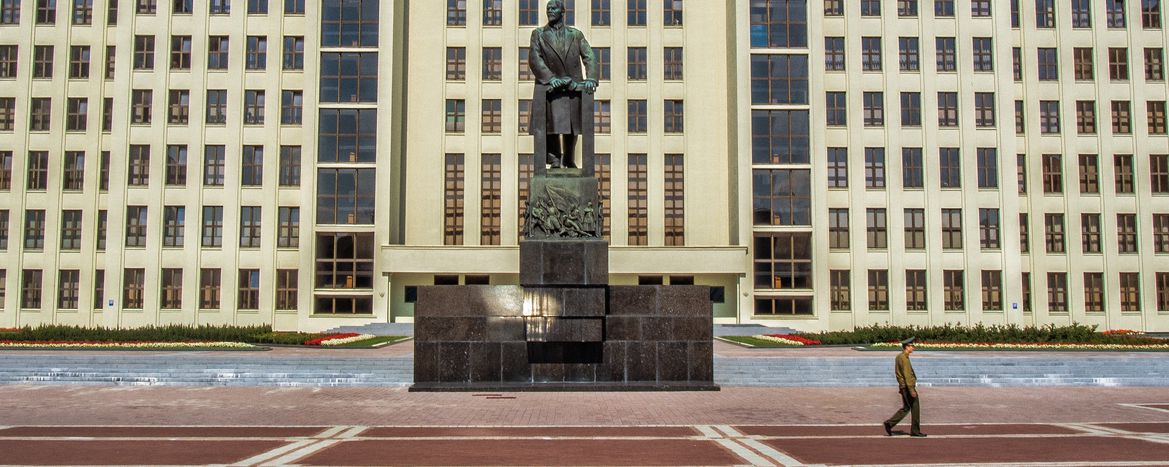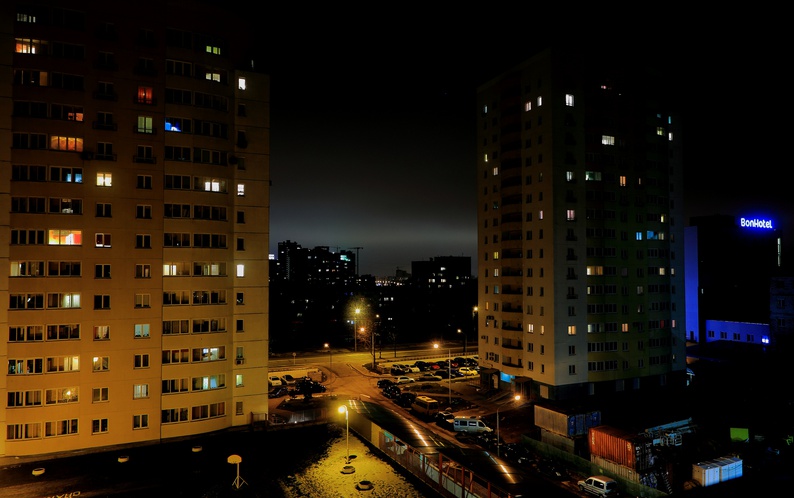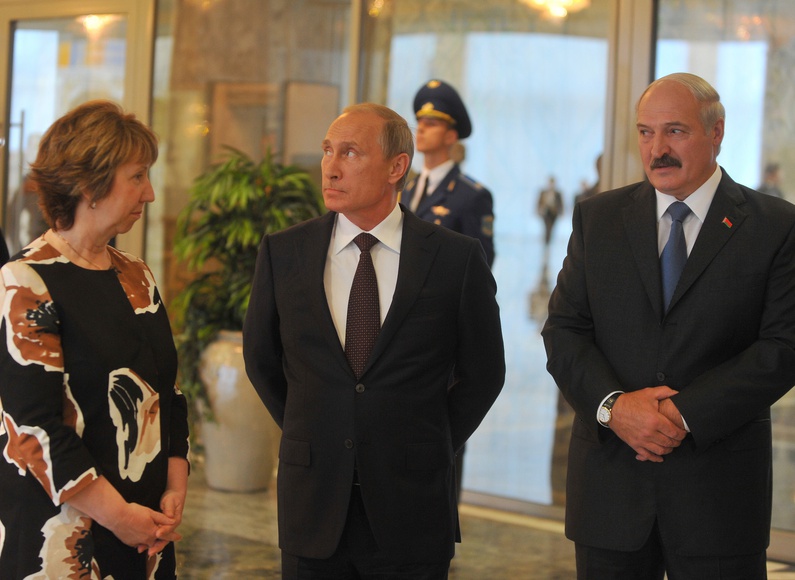
"Nothing will change": Going through the motions of elections in Belarus
Published on
Translation by:
Maria-Christina DoulamiOn Sunday, 11 October national elections were held in Belarus. However the winner has been unquestionable since the beginning of this electoral cycle. We asked a young Belarusian how she felt about the vote.
Aleksandra is a native of a southern region of Belarus on the border with Ukraine. She moved north, to the capital, to study at university, graduating in Psychology. Now she pays €350 a month for a single room in Minsk, in a country where university teachers earn €300.
Aleksandra is an alias, the girl in question has in fact requested to remain anonymous because she does not know "what can be said and what cannot." At the age of twenty she is not sure how freely she is allowed to speak: this already gives a significant idea of the political climate that reigns in the last dictatorship in Europe. President Aleksandr Lukašenko has been in uninterrupted power since the first elections of the post-Soviet country in 1994.
In reality, Belarus appears to have not moved far beyond 1917. The Secret Service is still called the KGB, as it was in the days of the USSR, and they seem to be just as diligent. In 2011, a terrorist attack took the lives of 11 people. In a lightning trial similar to those in the Stalinist period, two young men, Vladislav Kovalyov and Dmitry Konovalov, were convicted on the basis of their confessions alone. Confessions that, as stated later by one of the two, had been obtained through violence. Both were executed in March 2012.
 A solid agreement with Putin guarantees cheap energy and stability of borders. Whoever touches Belarus, in fact, touches the so-called Tsar. Protests and democratic processes were soon aborted. The latest surge of popular uprisings dates back to 2010: and led to political opponents and protesters being imprisoned, a script which is now becoming all too familiar. This story has already been written, and it doesn't leave room for improvisation, or variations on the theme.
A solid agreement with Putin guarantees cheap energy and stability of borders. Whoever touches Belarus, in fact, touches the so-called Tsar. Protests and democratic processes were soon aborted. The latest surge of popular uprisings dates back to 2010: and led to political opponents and protesters being imprisoned, a script which is now becoming all too familiar. This story has already been written, and it doesn't leave room for improvisation, or variations on the theme.
Unsurprisingly, the dominant theme of these elections has once again been a desire for stability. 80% of industry is in the hands of government, and with Lukašenko in the post this is not likely to change. The result of the elections was always obvious: on Sunday, the outgoing president was re-elected for a fifth consecutive term with 83.5% of the vote and a turnout exceeding 86% (according to official data). We spoke to Aleksandra to understand how people vote in Belarus.
cafébabel: What are the first three words that come to mind when you think of these elections?
Aleksandra: Voice, selection, despair.
cafébabel:What does democracy mean for you?
Aleksandra: People must be able to choose their Government, and more importantly have the power to influence it.
cafébabel: Did you go to vote?
Aleksandra: No, because I can only vote in my birth city, and I did not have time to return home.
cafébabel: There was a new candidate on the ballot this year: a woman, Tatyana Korotkevich. What are your views on her chances?
Aleksandra: She is a psychologist, very young, in a political landscape in which they are all over-55. Her electoral campaign was very good (the President instead opted for the garden rose strategy, ed.) and she is proposing the kind of things which I agree with. But no one believes that she could actually win.
 cafébabel: Western media have portrayed the 2010 uprisings as a spark of democratization. For this election were there any demonstrations against the government, demanding free elections?
cafébabel: Western media have portrayed the 2010 uprisings as a spark of democratization. For this election were there any demonstrations against the government, demanding free elections?
Aleksandra: No, none. (Apart from marginal protests, like the day before the elections, when a group of about 500 political opponents met in the square, Max Seddon reports from Minsk, ed.)
cafébabel: How do you assess the media situation in Belarus?
Aleksandra: I do not think there is anything particularly unusual. We have a free public network, available to all, and a paid private one, accessible only to a few. But with the Internet we can easily retrieve the information that is not transmitted by our state television.
cafébabel: Can voters vote freely? Or is there some form of control?
Aleksandra: All civil employees and the armed forces have to vote before election day.
cafébabel: Do you think that Lukašenko has succeeded in creating a solid power system?
Aleksandra: No.
cafébabel: Why, then, do people continue to elect him? What do you think is the main reason?
Aleksandra: I personally believe that in 1994 people were not informed because information was limited. We had not been "accustomed" to voting. Now the only reason is the fear that something will change. Total resignation reigns across the country. Whoever is awake can understand the situation, but nobody talks about it publicly. Everyone just says: "Nothing will change," "No one can do anything."
Translated from La fattoria degli elettori: come si vota in Bielorussia



